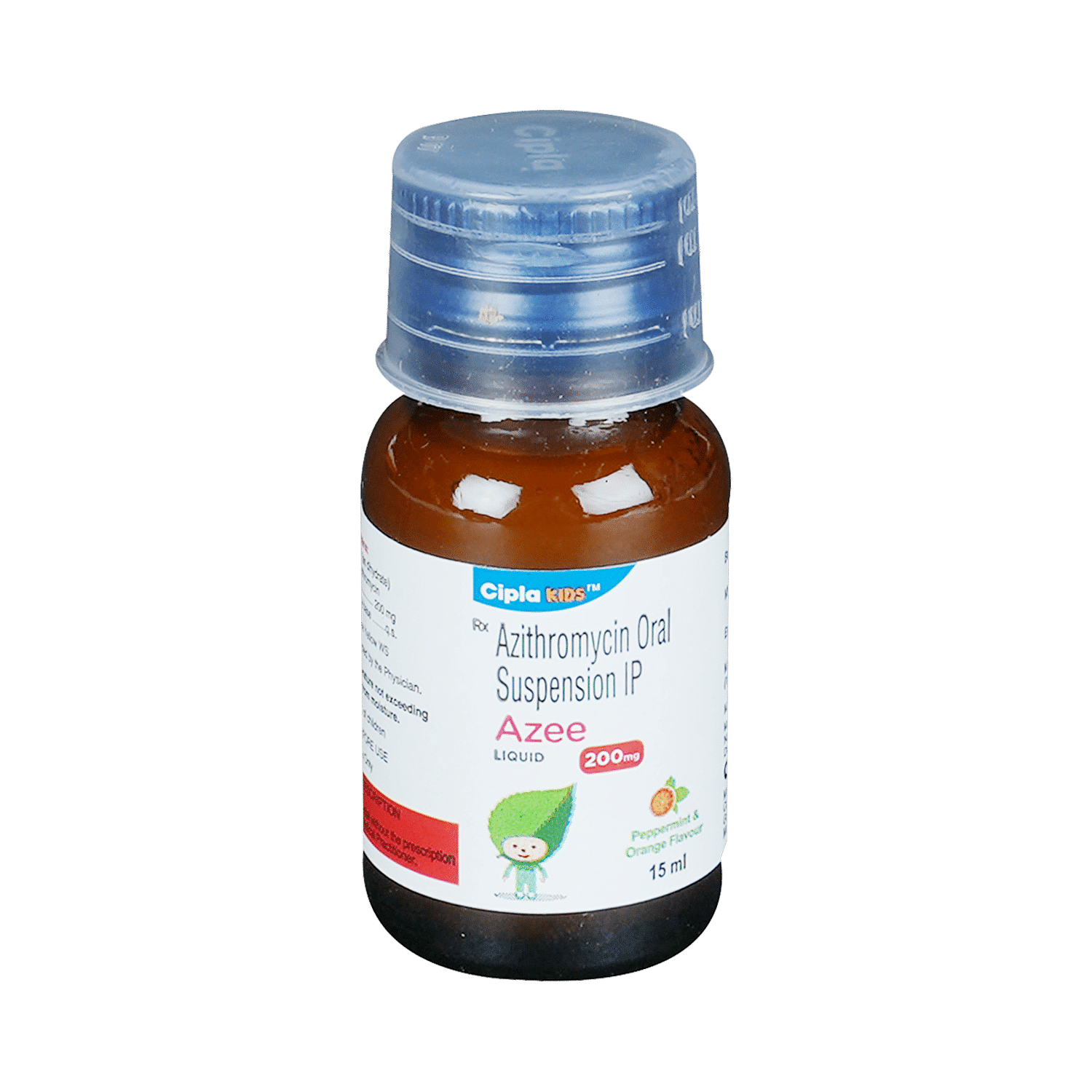
Amirox 200mg Oral Suspension
Manufacturer
Sois Formulations Pvt Ltd
Salt Composition
Azithromycin (200mg)
Key Information
Short Description
Amirox 200mg Oral Suspension is an antibiotic medication used to treat a wide range of bacterial infections in children.
Dosage Form
Oral Suspension
Introduction
Amirox 200mg Oral Suspension is an antibiotic medication commonly given to children for the treatment of bacterial infections targeting the ear, eyes, nose, throat, lungs, skin, and gastrointestinal tract. It is essential to complete the entire course of this medicine to avoid the bacteria multiplying again or causing another infection.
Directions for Use
Give Amirox 200mg Oral Suspension with food to avoid an upset stomach. Encourage your child to drink plenty of water in case diarrhea develops as a side effect.
How it works
Amirox 200mg Oral Suspension is an antibiotic that works by interfering with the synthesis of essential proteins required by bacteria to perform important functions. This stops the infection-causing bacteria from growing further and prevents the infection from spreading.
Quick Tips
Complete the entire course of this medicine Give Amirox 200mg Oral Suspension with food Encourage your child to drink plenty of water Only give Amirox 200mg Oral Suspension to your child for their current infection Stop the medicine and contact the doctor immediately if your child develops an itchy rash, facial swelling, and breathing difficulties soon after the intake
Related Medicines

Azee 200mg Liquid Peppermint & Orange

Azolox 200 Oral Suspension

Azithric 200mg Oral Suspension

Azilist 200mg Oral Suspension

Azoica Oral Suspension

Azimed 200mg Oral Suspension

Zizi XL 200mg Oral Suspension

Azibook 200mg Oral Suspension

Azitrim 200mg Oral Suspension

Abzee 200mg Dry Syrup
Frequently asked questions
What if I give too much of Amirox 200mg Oral Suspension by mistake?
Giving too much Amirox 200mg Oral Suspension is unlikely to cause harm. However, it's crucial to consult a doctor immediately if you suspect an overdose has occurred in your child. Overdose may lead to unwanted side effects and worsen your child's condition.
Are there any possible serious side effects of Amirox 200mg Oral Suspension?
Serious side effects of this medicine include persistent vomiting, kidney damage, allergic reactions, diarrhea, and severe gastrointestinal infections. If you notice any of these, contact your child's doctor for guidance.
Can other medicines be given at the same time as Amirox 200mg Oral Suspension?
While Amirox 200mg Oral Suspension can sometimes interact with other medications or substances, consult your doctor about any other medicines your child is taking before starting this medication. Always check with your doctor for guidance on administering any medicine to your child.
Can I get my child vaccinated while on treatment with Amirox 200mg Oral Suspension?
Antibiotics usually do not interfere with vaccines or cause a bad reaction in children who have recently received one. However, children taking antibiotics should be advised to postpone vaccination until they recover from the infection. Once your child recovers, the vaccine can be administered.
Which all lab tests should my child undergo while taking Amirox 200mg Oral Suspension on a long term basis?
Regular monitoring may involve kidney function tests and liver function tests to assess your child's overall health during prolonged treatment.
Can Amirox 200mg Oral Suspension impact my child’s digestion?
Children often experience digestive upset while taking medicines. When antibiotics are administered, the balance of good and bad bacteria in their gastrointestinal tract may be disrupted. Amirox 200mg Oral Suspension can potentially eliminate beneficial gut bacteria alongside harmful ones, increasing your child's risk of developing other infections. If your child experiences diarrhea during treatment with Amirox 200mg Oral Suspension, contact the doctor immediately. Don't discontinue the medication without consulting a medical professional. The doctor may adjust the dosage accordingly.
Why is Amirox 200mg Oral Suspension given for 3 days?
The duration of treatment depends on the type and severity of infection, as well as your child's age. Amirox 200mg Oral Suspension isn't always given for 3 days. For bacterial infections, a single dose of 500 mg is often prescribed for three days. Alternatively, it can be administered in two daily doses of 250 mg on days 2 and 3.
What should I avoid while taking Amirox 200mg Oral Suspension?
It's recommended to avoid antacids alongside this medication as they might affect its effectiveness. Furthermore, minimizing sun exposure or avoiding tanning beds is essential as Amirox 200mg Oral Suspension increases the risk of sunburn.
Is Amirox 200mg Oral Suspension a strong antibiotic?
Amirox 200mg Oral Suspension is a powerful antibiotic used to treat various bacterial infections. This medication has a longer half-life compared to other antibiotics, which means it stays active in the body for a longer duration. It is often prescribed once daily and for a short treatment period.
Can you get a yeast infection from taking Amirox 200mg Oral Suspension?
Some individuals may develop a fungal or yeast infection known as thrush after using Amirox 200mg Oral Suspension. Antibiotics like this can disrupt the balance of good and bad bacteria in your intestine, increasing the risk of thrush. If you experience symptoms such as itching, discharge, a white patch on your mouth or tongue after taking this medication or shortly after stopping it, seek guidance from your doctor.


